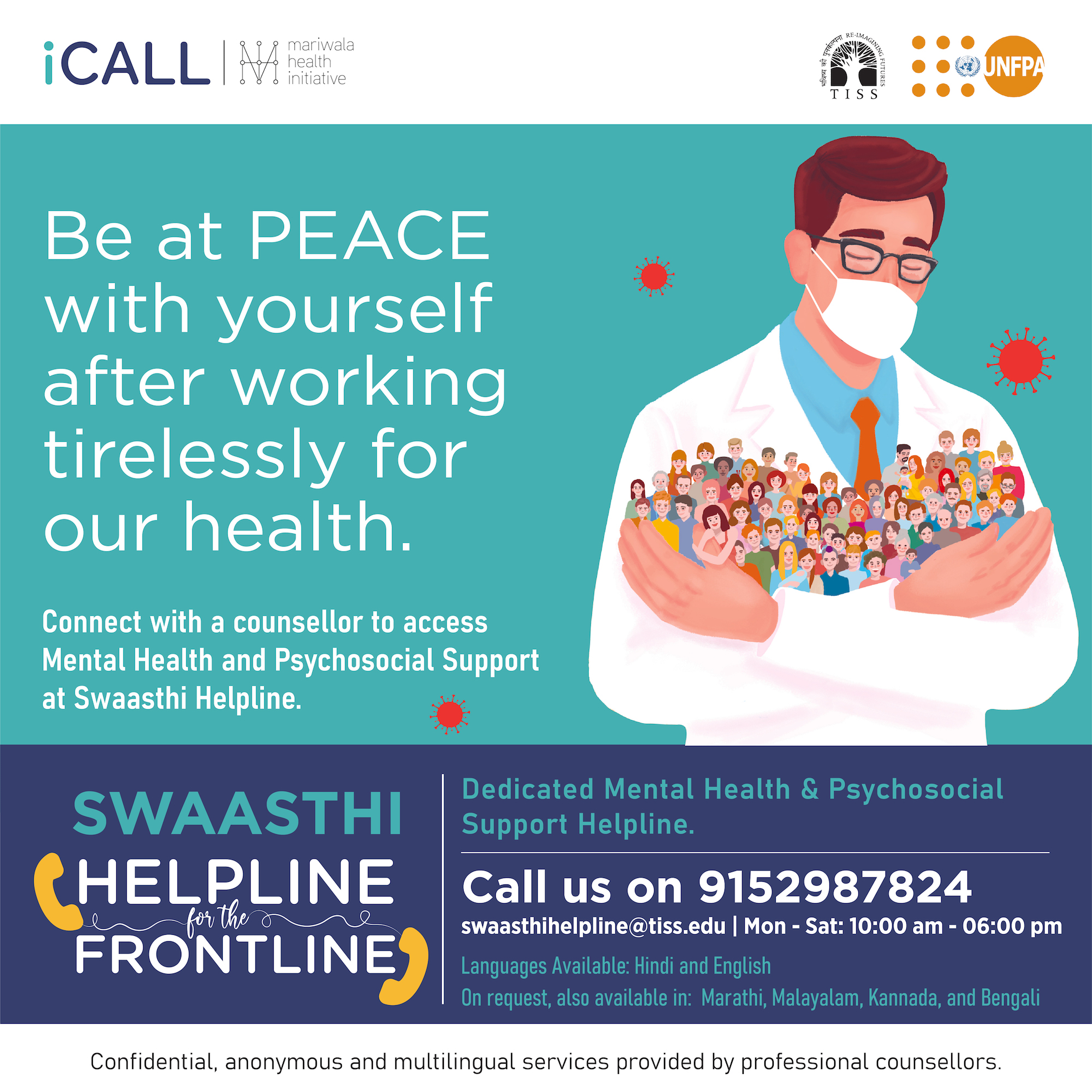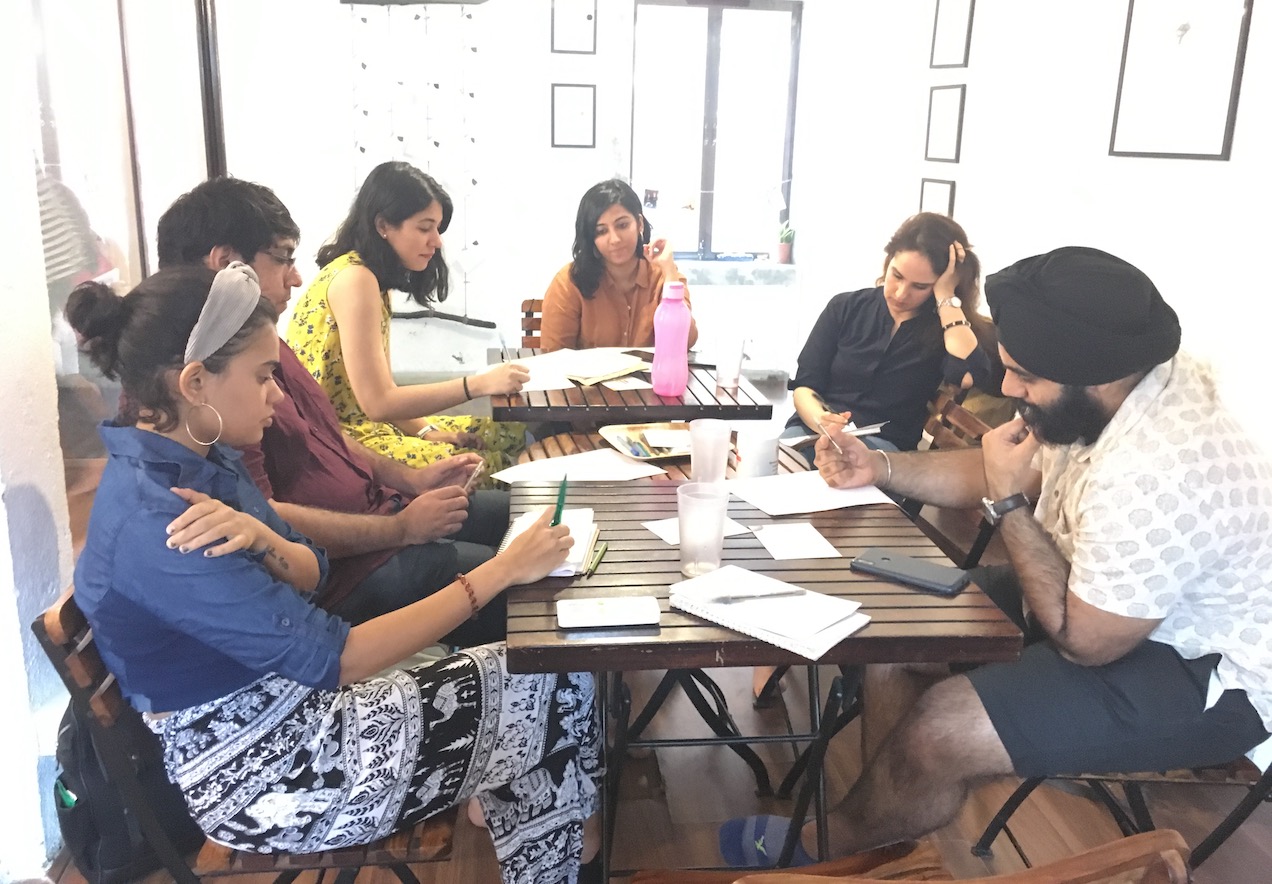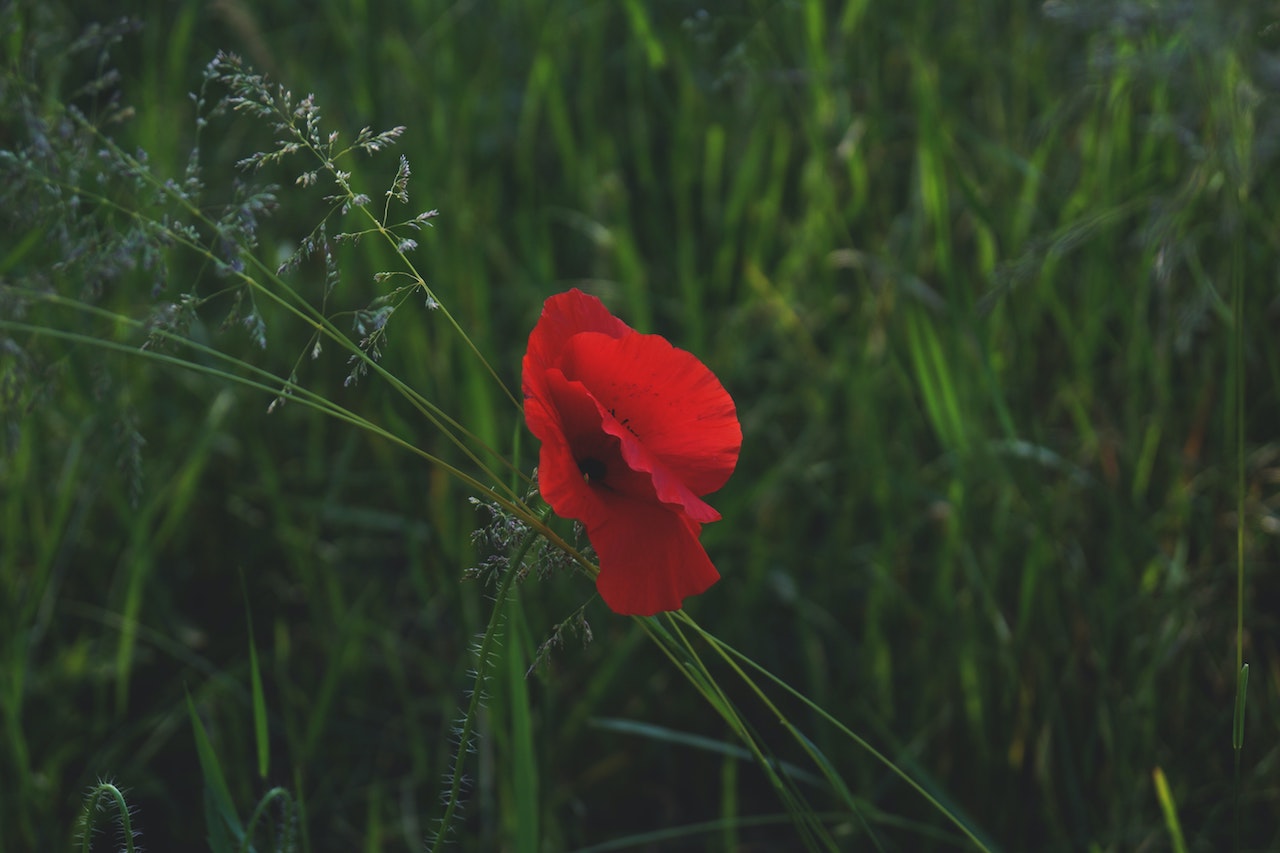Loneliness, Isolation, Burn-out: Why Covid-19 Frontline Healthcare Workers Need Their Own Helpline
While the entire country struggles with the ramifications of the Covid-19 pandemic, it’s perhaps not surprising that front line healthcare workers are dealing with the brunt of the issue. iCALL, TISS with the support of the United Nations Population Fund (UNFPA) launched a dedicated multilingual counselling helpline “SWAASTHI” earlier this year for healthcare providers and counsellors who are directly or indirectly involved in responding to the COVID-19 pandemic. Since May 2020 till the end of September, the team at Swaasthi has fielded a total of 295 calls.
How to contact the SWAASTHI helpline?
Number: 9152987824
Timing: Monday to Saturday / 10:00 am to 6:00 pm
Languages: Hindi, English, Marathi, Malayalam
Who Can use it: Doctors, nurses, technical staff of hospitals, support staff, hospital administration staff, psychiatrists, psychologists, counsellors, ambulance staff, ANMs, ASHA workers and any other healthcare staff deputed for COVID-19 frontline response

We asked the team to share some more information on the helpline and the kind of calls they’ve been getting.
- What led to the setting up of the Swaasthi helpline? How did the idea come about? Especially when many people aren’t perhaps thinking about the stress and burnout of healthcare professionals during Covid-19?
SWAASTHI arose from a wanting to serve the psychosocial needs of the frontline workers. The pandemic has brought about fear and uncertainty of various kinds, and frontline workers are working tirelessly, in isolation from their support systems, and at the receiving end of discrimination and violence in the worst-case scenarios.
- Any there any other such dedicated helplines in the country at all right now?
As of now, apart from Govt. helplines for frontline workers, there is no such dedicated helpline for frontline workers in India. There are many other helplines to address the concerns related to COVID- 19, but none of them are dedicated to healthcare professionals serving in this pandemic.
- How many counsellors are involved in the project?
There are 8 counsellors working for the helpline; the counsellors are trained professionals and have a minimum of a Master’s degree in Counseling or Clinical Psychology.
4) Can you talk us through some of the data so far from the total number of calls in case there are any trends?
The data reflects that the most number of calls have been received from the clients with suicidal ideations, that was closely followed by the clients reporting work-life concerns, Loneliness / Sense of Isolation, anxiety, and Panic, and concerns related to various relationships and self-image.
a) Work-life concerns: The issues clients have been facing in terms of the lack of structure and boundary in their working hours, shifting to new technology and set up in quarantine times, increased work-pressure, and lack of other resources at the workplace.
b) Loneliness / Sense of Isolation: Concerns related to the clients feeling lonely and isolated from the family during lockdown were addressed.
c) Anxiety and Panic: Concerns related to the experience of anxiety-provoking thoughts like anxieties and fear associated with contamination, and/ or death
d) Concerns related to various relationships: Issues faced by the clients in terms of the dilemma, and conflicts with their family members, peers, intimate partners, spouses, and children.
e) Self- image Concern: Concerns related to client’s poor self- esteem, their sense of failure, incompetency, and feeling if not being good enough as a healthcare worker.
The helpline also has received calls from the clients who have been experiencing the mental health concerns like depression and anxiety, along with a few of the other like facing violence from the peers, or harassment at the workplace
5) Can you highlight any quotes that really stand out for you and the team?
A few of the experiences shared by the clients over the sessions seem to have reflected the struggle of frontline workers in this pandemic:
“I am being harassed at my workplace and being pressurised to work in the COVID ward”.
“I feel guilty for not providing genuine support and assurance to the clients”
“I am feeling burnt out, working day in and day out”.
“I am feeling anxious about the possibility of infecting my kids with the virus as I work in a clinic’’
“I feel the problem is with me, I am overthinking in every situation”
“I am not giving my enough as a counsellor”
“I can’t take so many deaths anymore, why so many people are dying??”
6) Any tips that we can share with healthcare providers and their families?
Here are some self-care tips:
- Acknowledging and normalising your stress responses
- Engage in positive self-talk
- Reflecting inward to identify the signs of emotional and physical stress
- Taking short breaks from work to navigate through your difficult experiences of stress
- Following healthy sleep, proper nutrition, regular exercise
- Creating and accessing a self- soothing kit to comfort your nerves and senses whenever you would feel overwhelmed
- Confiding with a therapist and seeking help to navigate through this difficult time
More info: http://icallhelpline.org/swaasthi-resources/
Feature Image by Raw Pixel



